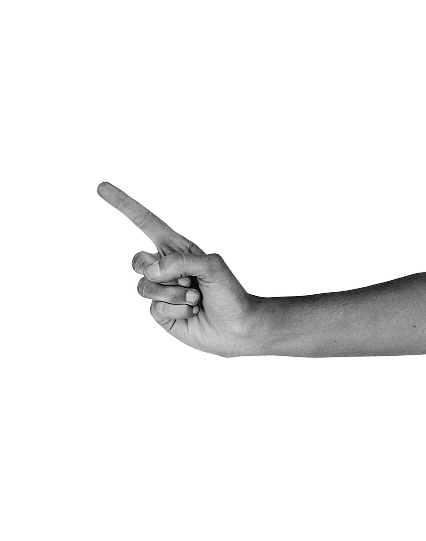
I thought it a good idea to create a glossary as a way to clarify the terms, positionality, and perspectives used in this article. It aims to ensure that readers understand the critique as one directed toward Western, colonial ways of listening and knowing, and not as a universal claim about listening itself. It acknowledges that Indigenous and Global Majority ways of listening offer deep relational knowledge that has been historically marginalised or erased by colonial systems.
We / Our:
In this text, ‘we’ and ‘our’ refers to people shaped by and living within the dominant cultural, economic, and political systems of the Western world—whose ways of knowing, including listening, have been shaped by colonialism, capitalism, and extractive industrialisation. This is distinct from Indigenous and Global Majority peoples, whose listening practices have been systemically marginalised but continue to hold relational and ecological knowledge that resists colonial erasure.
Decolonising:
The process of identifying, challenging, and dismantling colonial systems of thought, value, and practice. Decolonising is not a metaphor but an ongoing commitment to restoring relationships with land, community, and the more-than-human world. In the context of this piece, it refers to unlearning colonial listening practices and reclaiming relational, embodied, and ecological forms of listening.
Listening:
Here, listening is not simply the physiological act of hearing and processing auditory information, but a cultural, relational, and epistemological practice shaped by historical forces, power dynamics, and worldviews. It includes how we listen, what we value in sound, whose voices are heard, and how listening is positioned in systems of knowledge, power, and culture. A further list of ways of listening (e.g. colonised listening, listening as commodity, listening as spectacle etc) are at the end of this document.
A Living Document:
We are in a time when writing doesn’t need to be static in some forms, which is good because I am not static, not an academic, and the opinions I have are from the limit of my own narrow experience. As I learn and grow, so too this article may be added to or amended on both the platforms it goes out on and on my own website. This is an attempt to keep a dynamic relationship between myself, responses to the work and the work itself, and to avoid the rigidity of fixed labels[1].
Listening as well as reading:
There’s an invitation to listen to Decolonising Listening V1 on my website. In this exercise we listen first to the sea, then we breathe with the sea, then we become the sea. The feeling we have in our bodies becomes vocabulary for change on a fundamental level.

Our listening, defined as the conscious interpretation of sound, is colonised. This is a provocative statement, Listening itself (as a physiological phenomenon) is not colonised—but our interpretation, value systems, and practices around listening are[2]. What we think of as listening has been shaped by hundreds of years of extractive human development. However, our physiological response to sound, evolved over many millennia, and including entrainment with sounds of the natural world, is where we can break our conditioning and remember our relationship as nature.
This process of unlearning and remembering aligns with broader movements of reclaiming embodied knowledge. Audre Lorde writes about black, ancient and non-European ways of being as part of reclaiming our lived experience – “we learn more and more to cherish our feelings, and to respect those hidden sources of our power from where true knowledge and therefore lasting action comes.”[3] Similarly, as we rewild the way we listen, the knowing we have in our bodies becomes the DNA for change on a fundamental level.
To reclaim this embodied wisdom, we must first understand where colonised listening comes from, confronting the historical forces that have shaped and constrained us, and realising how deeply it permeates our shared ways of thinking. Over the last 12,000 years we have separated ourselves from nature in a number of social and energy transitions including agriculture, Colonialism, fossil fuel extraction and unbridled exponential Capitalism[4]. We’ve taken from our environment, and our fellow humans, to the extent that we are now in polycrisis[5] – multiple crises that are environmental, economic, social, technological and geopolitical – that overlap and unfold at the same time.
This crisis is not just external, but also internal—an erosion of the imagination, of the stories and narratives that shape our sense of possibility. We have an opaque understanding that we have lost our way, but with no pathway to change, even as it gets harder to survive in increasingly volatile times. This is no accident, as dominant narratives impede any progression from an extractive way of life to an ecological one, in what Anne Stoler describes as “colonial aphasia”[6]. One could suggest that the Great Acceleration is also the Great Hijacking of the Human Psyche, where our relationships with place, each other and ecology diminish, in favour of a trauma bond with hierarchy, colonialism, consumption and growth. As Graeber and Wengrow write “We know now, that we are in the presence of myths”[7], and they are destroying us.
In this context, it’s crucial to ask: who gets to define knowledge, and whose ways of knowing are silenced? We’ve never been given the means with which to re-imagine; part of the problem is that we thought that knowledge based on a system of extraction was true knowledge in the first place[8]. Dominant structures tend to extract from the lives, labor, and creativity of everyday people, while simultaneously controlling the narratives through which those lives are interpreted. As part of this, our institutions tend to privilege Eurocentric epistemologies, gatekeep access through class and language, and abstract lived realities into theories that benefit researchers more than the communities studied[9]. The metrics of legitimacy—peer review, citation counts, institutional affiliations—often exclude and devalue non-Western, Indigenous, and community-based forms of knowledge.
With listening it is no different. A 2017 UK study collecting definitions of listening from 1925 to the present day contains 19 definitions, almost all of which present listening as a cognitive and behavioural skill—a linear process that can be utilised by an individual listener[10]. This reflects a general historic tendency within Western epistemologies to frame listening as mainly an intellectual and cognitive act, divorced from embodied, relational, and ecological contexts. For example Theodor W. Adorno talks about listening as an intellectual, analytical act tied to the structures of musical form and social critique[11], Gilles Deleuze talks about listening as individual conceptual becoming[12], and Jacques Derrida’s focus is on language, meaning and political metaphor[13].
Even within the work of influential pioneers such as Pauline Oliveros, Murray Schafer and John Cage—who have opened profound new pathways in sound art and consciousness studies—there are limitations. Their framing, though innovative, remains part of Western imaginaries, secular, and often individualist, even when it borrows from or parallels ancestral, land-based, or sacred listening systems. Without foregrounding shared ecology, and instead being rooted in and uplifted by colonial power structures, there is the risk of aestheticised mindfulness—vapid tranquility without relational accountability. Similarly, the highest considered forums of listening can also be the most exclusive, the most homogeneous, the most intellectualised. This is part of the fetishisation of listening in the Capitolocene, which includes listening as commodity, listening as spectacle, listening as wellness, and listening as technological masturbation. As we move further into polycrisis, it will be harder and harder to defend listening as a soothing way to bypass the suffering of the world, avoiding grief and responsibility while injustices scale and children burn[14].
༺༻༺༻
If the Western model risks aestheticising listening, non-Western traditions moralise and socialise it. Reframing listening as a relational, embodied practice highlights the stark differences in these worldviews. Take for example Dadirri[15], a concept from the Ngangikurungkurr people of Australia. It means “deep listening”—not just to speech, but to land, spirit, silence, and the subtle rhythms of life. Or consider Ubuntu[16], an African philosophy where listening is about moral and relational responsibility, and about sustaining the social fabric. Across Native American, Māori, Andean, and East Asian traditions, listening is treated not as an individual skill but as a relational practice. It’s embedded in ceremony, shaped by landscape, and informed by ancestors. Listening is often multi-sensory, embodied, and spiritual—something you live, not simply do. These ways of listening are bolstered further by practices in traditions such as Nada Yoga (sound and vibration as a path to self-realization and inner transformation), Buddhism (where listening cultivates understanding around non-self, transcending duality and transforming perception), and Sufi / Shamanic traditions (breaking down the ego and union with the divine).
The above perspectives challenge the very foundation of emphasis on form, separation, and categorisation inherent in the colonial project. The benefit (or need to to change) for people and planet are clear (as we move further away from democracy, our human rights are eroded, and we continue to exceed our planetary boundaries), but how do we, people in different stages of our own journey of decolonisation, learn from this knowledge without co-opting it?
The first step is to understand listening as not simply the physiological act of hearing and processing auditory information, but a cultural, relational, and epistemological practice shaped by historical forces, power dynamics, and worldviews. How we listen, what we value in sound, and whose voices are heard, is positioned in systems of knowledge, power, and culture. Within this one could reintegrate existing ideas of listening as responsibility, listening as respect to land, and with current areas of harm and injustice in the world, listening as solidarity and resistance.
The second step would be to bodily understand that the power to uphold these values comes not just from intellectualising a sense of responsibility and accountability, but from the relational space that listening is on the level of non-form, and non-self. This is a space where we find that we can question and redefine mental structures that have been inherited, colonised, designed to oppress or call something an “other”. Because these structures no longer serve us.
I would argue that in the Capitalocene ours is a problem of otherisation inherent in modern forms. Where can we have the confidence of knowing, being and ethics in a way that doesn’t subscribe to form? The answer is in recognising the power of listening as a decolonised act. The truth is that we already listen as part of everything, it’s just we’ve been taught to only recognise a small part of what listening actually is. Sound is universal to all of us, it pre-dates not just colonialism but all organised societies[17], reflecting our deep evolutionary and cultural connections to soundscapes shaped by nature. We journey beneath language, form and separation, in a vibrational realm where there is no “other” and we are listening as, not listening to. This is not a new concept, but one that is found in traditions across the world, almost all of them using sound to understand interconnectedness, non-duality, and animistic perspectives[18]. Such perspectives remind us that sound is not just an object to be perceived, but a medium through which we experience our unity with all things.
Understanding sound as a universal primer for connection may lead us to new vocabulary beyond the limits of language[19]. As children, when we first discovered our favourite songs – the way we then listened to music was with our bodies. We weren’t listening consciously; we became the music, the boundaries between self and sound dissolved, allowing us to inhabit a space of pure being and active becoming[20]. The same thing can be said for the way we listen to the birds, the forest, the oceans, the voices of people, in fact, any sound at all.
When we experience a sound we are nature witnessing itself. We understand that listening is something that can be deconstructed, rebuilt with decolonised perspective, and that it can be our guide for shared ecology and challenging myths in the Capitolocene. Lastly and most importantly, it feels good. Our bodies know the difference, the joy in being part of nature as opposed to something outside it[21]. We realise we were never apart in the first place, and once our bodies know this they will never go back. We are nature through sound.

Colonial Listening
A mode of listening shaped by colonial histories—marked by separation, extraction, objectification, and control. It reduces sound to data, resource, or aesthetic object, severed from relational, ecological, and spiritual contexts.
Listening as Commodity
The framing of listening as a product to be consumed—through music streaming services, soundscapes for wellness apps, and audio content designed for productivity or mood enhancement. This form of listening is shaped by market logics, where sound is packaged, owned, and sold, abstracted from place, people, and ethics.
Listening as Spectacle
When listening is framed as a cultural performance or event, often mediated by institutions, technology, or capital. It prioritises novelty, virtuosity, or intellectualisation over deep relational engagement, and often privileges those already in positions of cultural or academic authority.
Listening as Wellness
The co-option of listening practices into wellness industries, where sound is used as a tool for individual self-improvement, productivity, or stress relief, often without acknowledging its cultural, ecological, or ethical contexts. This form of listening may soothe but rarely transforms.
Aestheticised Mindfulness
A form of listening that foregrounds aesthetic or sensory pleasure (such as relaxation or beauty) without critical engagement with the social, ecological, or political contexts of sound. It risks being a passive consumption of tranquillity, disconnected from accountability or change.
Vapid Tranquillity
A superficial state of calm produced by soundscapes, meditations, or ambient music that soothes without addressing the underlying conditions of harm, disconnection, or injustice. It is tranquillity without relational depth or ethical grounding.
Listening as Technological Masturbation
A critique of how listening becomes self-referential, fetishised, or divorced from relational meaning—where the focus is on the technical, the equipment, the analysis, or the “purity” of sound itself, rather than on the relationships, stories, and ethics of listening. It reflects a desire for control, perfection, and abstraction, often at the expense of humility, reciprocity, and ecological attunement.
[1] Inspired by Tyson Yunkaporta talking about “Ganma,” a Yolngu term describing the mixing of saltwater and freshwater, symbolizing the productive tension between different knowledge systems. This metaphor highlights the value of interaction and the limitations of rigid classifications.
[2] Colonial Mentality https://en.wikipedia.org/wiki/Colonial_mentality
[3] Poetry Is Not a Luxury (1985) Audre Lorde
[4] The Human Planet: How We Created the Anthropocene. Simon Lewis, Mark A. Maslin
[5] Welcome to the Great Unraveling: Navigating the Polycrisis of Environmental and Social Breakdown. Richard Heinberg, Asher Miller
[6] Colonial Aphasia: Race and Disabled Histories in France. Ann Laura Stoler
[7] The Dawn of Everything. David Graeber & David Wengrow
[8] Epistemologies of the South – Justice Against Epistemicide. Boaventura de Sousa Santos introduces the term ‘epistemicide’ to describe the systematic destruction of non-Western knowledge systems through colonialism.
[9] From “The Coloniality Of Knowledge” – introduced by Peruvian sociologist Aníbal Quijano, addresses this issue by highlighting how colonial power structures continue to influence knowledge production, leading to the dominance of Western paradigms and the marginalization of non-Western perspectives.
[10] Defining Listening – Worthington & Bodie, 2017. In book: The Sourcebook of Listening Research: Methodology and Measures (pp.3-17)
[11] Introduction to the Sociology of Music – Theodor W. Adorno: “Listening today is a social function, and what people ‘listen to’ is conditioned by their social situation… The more the autonomy of art is sacrificed, the more the listener is turned into a consumer.” (Adorno, 1976, p. 9)
[12] A Thousand Plateaus (1980), Difference and Repetition (1968), and What is Philosophy? (1991) – Gilles Deleuze
[13] “The Ends of Man” (1968) and “Voice and Phenomenon” (1967), “The Ear of the Other” (1982) – Jacques Derrida
[14] As I write this families have just been bombed and burned to death in a school in Gaza. 27.05.25 https://www.bbc.co.uk/news/articles/cz9yjj54v3xo, along with multiple genocidal emergencies around the world in places like Sudan, DRC, Myanmar, Yemen and Ukraine.
[15] “To Be Still: Dadirri” Miriam-Rose Ungunmerr https://www.miriamrosefoundation.org.au/dadirri/
[16] “Intellectual History in Contemporary South Africa” Michael Onyebuchi Eze
[17] “Before human-made music, there was the symphony of the wild, guiding our ancestors, providing cues for survival, and creating the auditory backdrop against which all life evolved.” The Great Animal Orchestra: Finding the Origins of Music in the World’s Wild Places – Bernie Krause
[18] Traditional sound practices that facilitate interconnectedness with nature include Nāda Yoga (India), Shamanic Traditions (Various Indigenous Cultures), Sufism (Islamic Mysticism), Bon Tradition (Tibet), Indigenous Australian Traditions (Australia), Native American Traditions (North America), African Griot Traditions (West Africa), Maori Haka and Waiata (Aotearoa/New Zealand), Balinese Gamelan (Indonesia), Sami Joik (Northern Europe), Vodou Ritual Music (Haiti and West Africa), Inuit Throat Singing (Arctic Regions), Zulu Isicathamiya (Southern Africa), Celtic Spirituality (Ireland, Scotland, Wales), and Norse Animism (Scandinavia), Saami Spirituality (Northern Europe).
[19] Taoism treats language as a tool somewhat deficient in unfolding ultimate reality to the full extent – “Those who know do not speak; those who speak do not know”. (Chapter 56) Lao-tzu.
[20] “Music speaks not to the ears alone but to the vital rhythms of the organism, bypassing rational thought to communicate directly with the soul.” Philosophy in a New Key: A Study in the Symbolism of Reason, Rite, and Art – Susanne Langer
[21] Learning the Grammar of Animacy, Braiding Sweetgrass – Robin Wall Kimmerer
Community.

